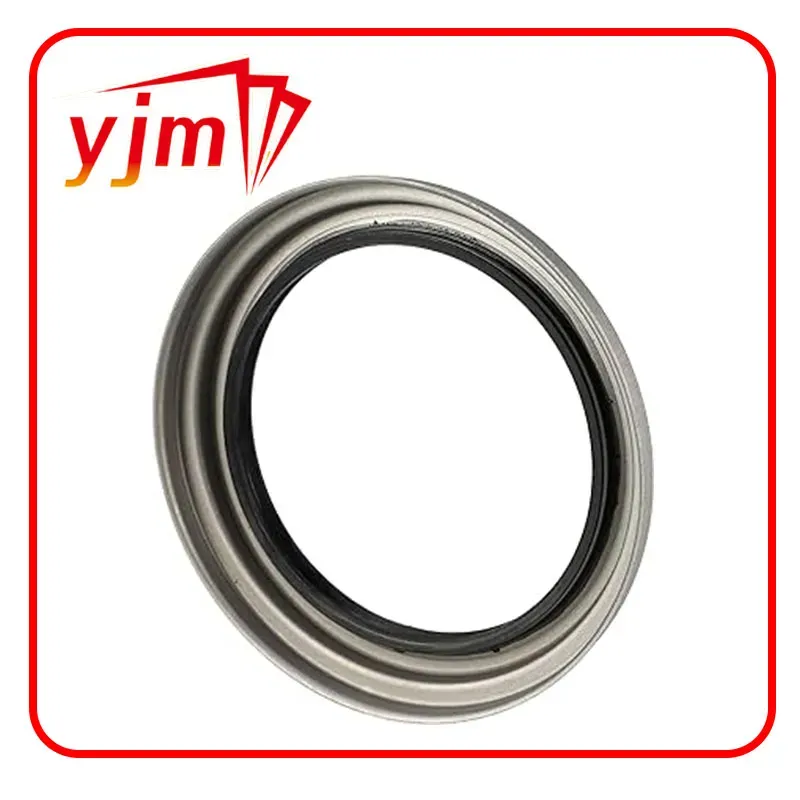differential seal
Understanding Differential Seals A Key Component in Engineering
In engineering applications, the need for effective sealing solutions is paramount. Differential seals are one such innovative solution that plays a crucial role in various machines and systems. This article will delve into what differential seals are, their functions, applications, and the benefits they offer in engineering.
What are Differential Seals?
Differential seals are specialized sealing devices designed to maintain a pressure differential between two compartments. They are often used in environments where liquids or gases are present under varying pressure conditions. The primary objective of differential seals is to prevent leakage and contamination between different fluid chambers, thereby ensuring the proper functioning of mechanical systems.
The design of differential seals varies widely depending on their application. Typically, they consist of various materials, including elastomers, metals, and composites, and are engineered to cope with specific environmental conditions like temperature, pressure, and chemical exposure. Various sealing mechanisms can be employed, such as lip seals, O-rings, and labyrinth seals, each providing unique advantages based on the context of their use.
Function of Differential Seals
The main function of differential seals is to isolate two media under differing pressure conditions. This is especially vital in machinery where different fluids must not mix, such as in hydraulic systems, gearboxes, and fuel systems.
Moreover, differential seals also help in controlling the flow of fluids within systems. By effectively managing the pressure differences, these seals prevent unwanted leaks, which could lead to operational inefficiencies or catastrophic failures. They maintain the integrity of the system, allowing it to function optimally.
Applications in Various Industries
Differential seals find extensive applications in multiple industries
. Here are a few areas where they are indispensable1. Automotive Industry In vehicles, differential seals are crucial in the drivetrain, ensuring that lubricants stay within the gearbox while preventing contamination from outside elements. This prolongs the life of the transmission and improves overall vehicle performance.
differential seal

2. Aerospace In aerospace applications, differential seals play a role in hydraulic systems and fuel tanks, where maintaining pressure integrity is critical. Their reliable performance in extreme conditions is vital for safety and efficiency.
3. Manufacturing In the manufacturing sector, differential seals are used in equipment that handles hydraulic fluids and lubricants. Their ability to prevent leaks contributes to reduced downtime and maintenance costs.
4. Oil and Gas Differential seals are crucial in downhole drilling operations, where maintaining pressure integrity is critical to prevent blowouts. They help maintain separation between different fluid phases, ensuring safe extraction processes.
Benefits of Using Differential Seals
The advantages of implementing differential seals in engineering applications are numerous
- Leak Prevention By ensuring that fluids remain contained within their designated zones, differential seals help in minimizing the risk of leaks, which can lead to severe damage and safety hazards.
- Cost Efficiency Preventing leaks not only reduces the likelihood of equipment failure but also lessens the need for frequent maintenance, leading to significant cost savings in the long run.
- Enhanced Performance Differential seals contribute to the overall efficiency of systems by maintaining pressure differentials, resulting in better performance and reliability.
- Safety Particularly in high-pressure systems, the use of differential seals can significantly enhance safety by preventing unwanted fluid escape and potential hazards.
Conclusion
In summary, differential seals are vital components in modern engineering, providing effective solutions for maintaining pressure differentials across various applications. Their ability to prevent leaks, reduce maintenance costs, and enhance system performance makes them indispensable in numerous industries. As technology continues to evolve, the design and materials used in differential seals will likely advance, further improving their functionality and application versatility. Understanding their importance is crucial for engineers looking to optimize system integrity and efficiency.
-
Understanding the Front Main Engine Seal: Purpose, Maintenance, and Installation
News Jul.29,2025
-
Understanding O-Rings and Seal Rings: Types, Applications, and Custom Solutions
News Jul.29,2025
-
Understanding Crankshaft Oil Seals: Rear Seals, Pulley Seals, and Their Role in Engine Integrity
News Jul.29,2025
-
The Importance of Front and Rear Crankshaft Seals in Engine Performance and Oil Management
News Jul.29,2025
-
Crank Oil Seals: Functions, Types, and Cost Considerations in Engine Maintenance
News Jul.29,2025
-
A Comprehensive Guide to O-Rings and Seals: Types, Materials, and Global Applications
News Jul.29,2025
-
Mastering Diesel and Performance Engine Maintenance: A Guide to Critical Oil Gaskets
News Jul.28,2025
Products categories















